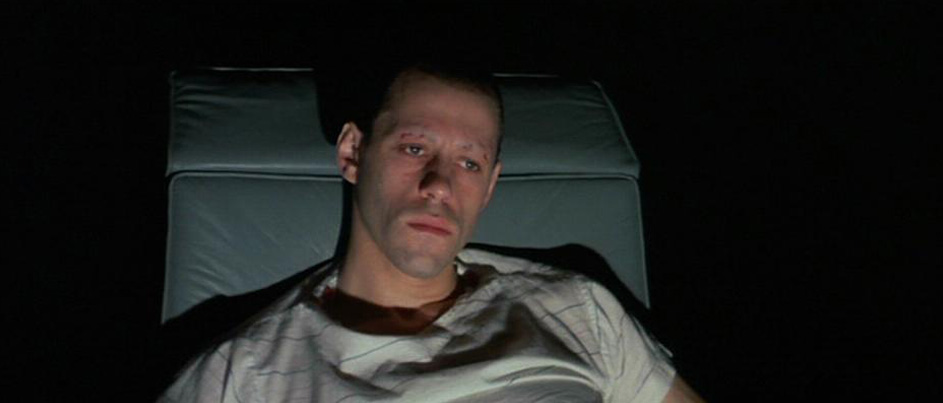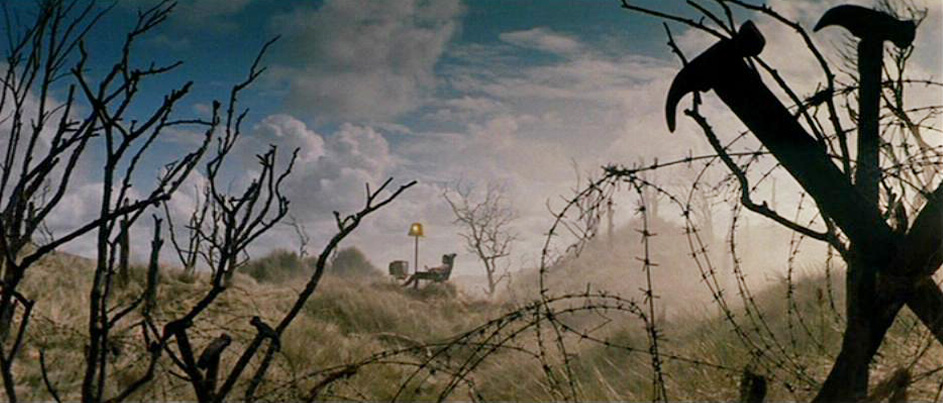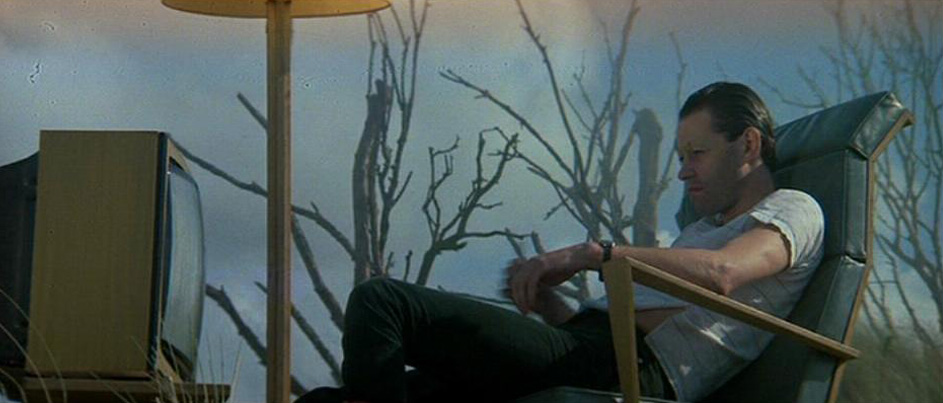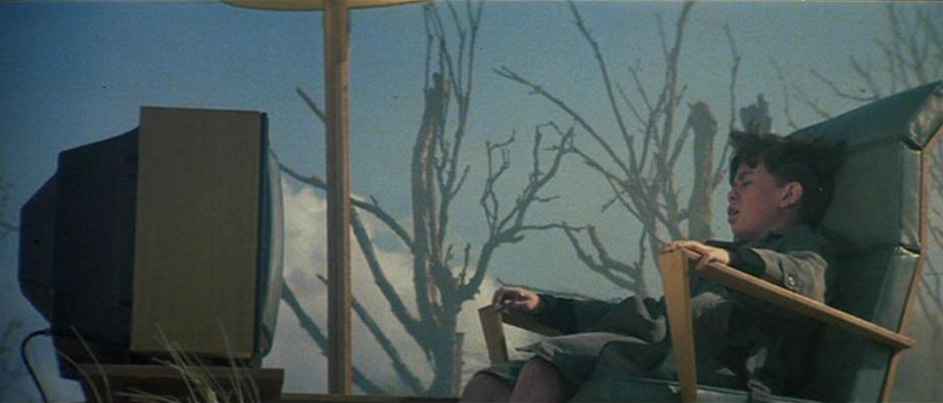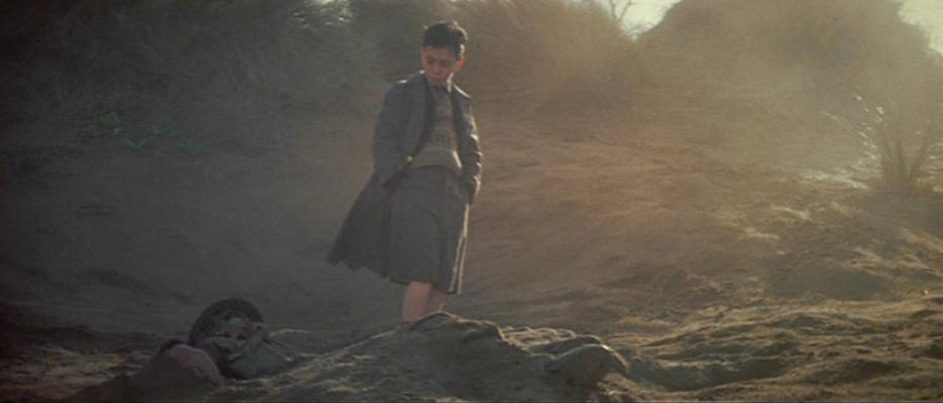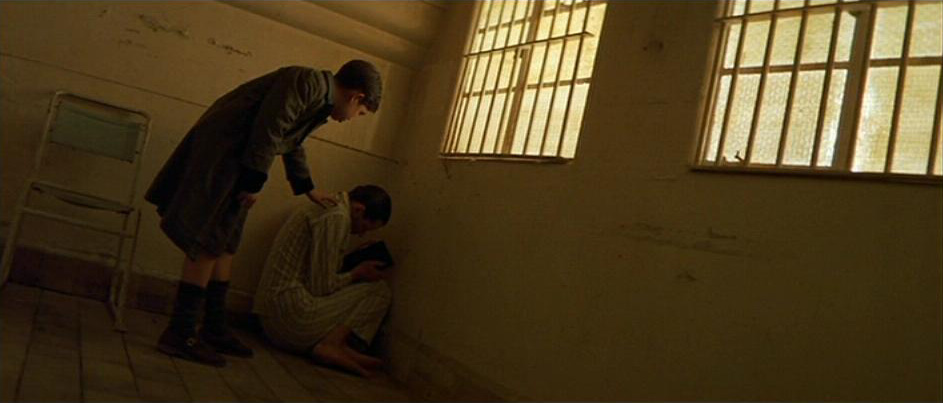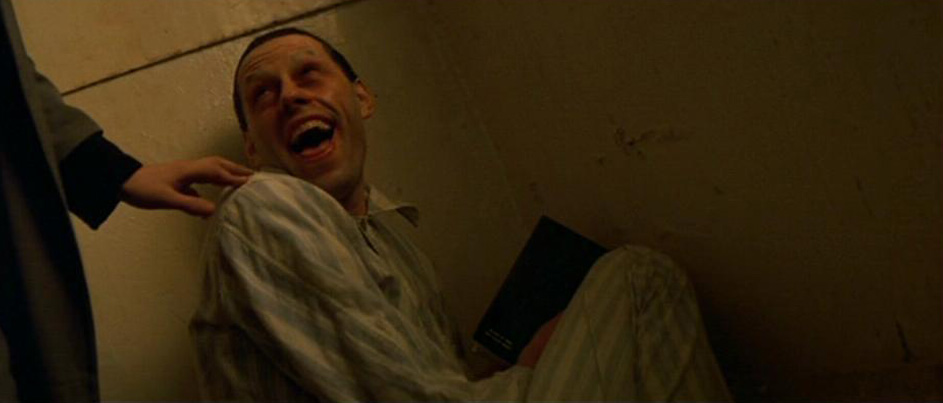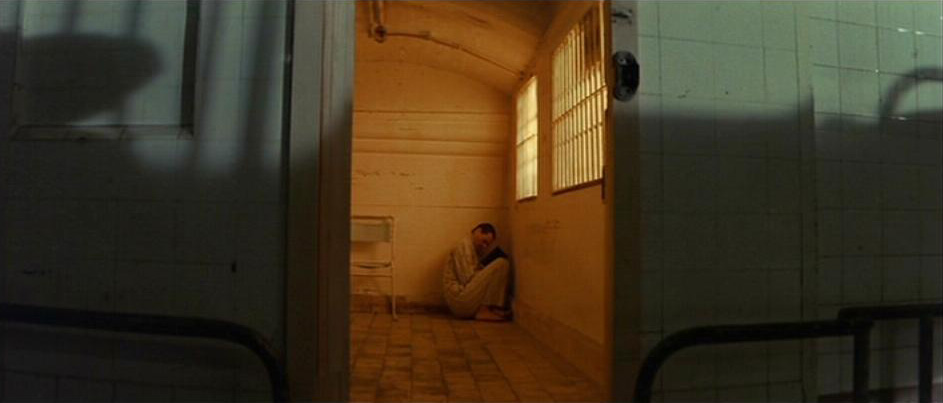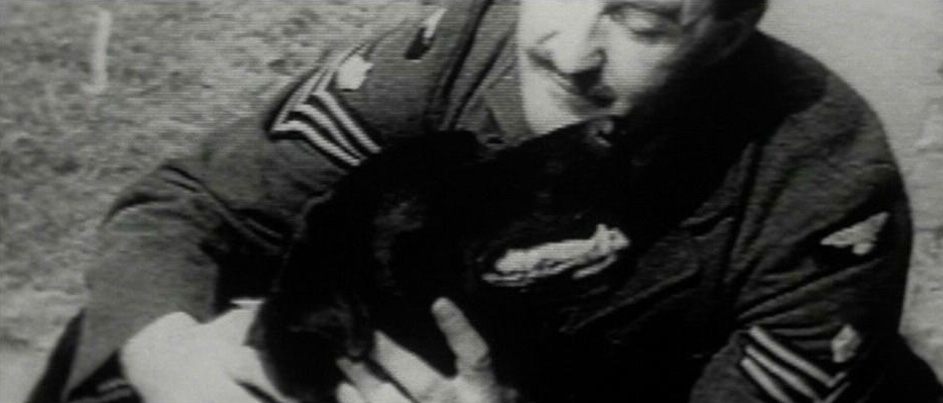Nobody Home
[Roger Waters]I've got a little black book with my poems in.
Got a bag with a toothbrush and a comb in.
When I'm a good dog they sometimes throw me a bone in.
I got elastic bands keeping my shoes on.
Got those swollen hand blues.
I've got thirteen channels of shit on the T.V. to choose from.
I've got electric light.
And I've got second sight.
I've got amazing powers of observation.
And that is how I know
When I try to get through
On the telephone to you
There will be nobody home.
I've got the obligatory Hendrix perm.
And the inevitable pinhole burns
All down the front of my favorite satin shirt.
I've got nicotine stains on my fingers.
I've got a silver spoon on a chain.
I've got a grand piano to prop up my mortal remains.
I've got wild staring eyes.
And I've got a strong urge to fly.
But I've got nowhere to fly to.
Ooooh, Babe. When I pick up the phone
There's still nobody home.
I've got a pair of Gohills boots
And I've got fading roots.
Song In A Sentence:
Feeling that his wife and the world are now beyond his reach, Pink lists the inconsequential things that are still within his grasp – the possessions in his hotel room and his unrealized dreams of personal freedom.
“P art of him [wants help], but part of him that’s, you know, making all his arms and legs…that’s making everything work, doesn’t want anything except just to sit there and watch the TV.” So Roger Waters explained in his 1979 album explication with Tommy Vance. Such is the state in which we find Pink in “Nobody Home,” locked away in his hotel room with some inkling that he needs help, but uncertain as to whether he truly wants it or how to even go about getting it. In his fragile, near-catatonic mental and physical state, Pink begins to list those things that he has, those things of which he is certain that he still possesses, after having lost so much in his life already; including most recently, his wife’s love.
“Nobody Home” is to the drugged-up, worn out celebrity as “Young Lust” is to the naïve and sexually driven rock star first making it in the business. In a way, the songs are companion pieces depicting opposite ends of a superstar’s manic-depressive career, with the manic euphoria of “Young Lust” embodying a hedonistic embarkation into a world of carnal pleasures, only to be followed by the depressive quagmire of “Nobody Home” and its awareness that such luxuries, not to mention a life based solely on them, are hollow and meaningless. All the things by which he’s defined himself – the possessions and drugs and fame – are merely stage props void of personal significance…a realization that slowly dawns on Pink throughout “Nobody Home” as well as the rest of the album’s second half.
The verse structure of “Nobody Home” and its running inventory of possessions and latent emotions alternates between the nihilistic, the optimistic, and even the oddly humorous. The resulting effect is a mind untethered, floating along the stream of consciousness and never quite landing on any one mood, or personal philosophy, or theme even, excepting the one lyrical idea that he returns to with each chorus – the idea of “home.” Although the song is relatively complacent with Waters’ mostly composed voice drifting over the introspective piano chords, there is still a sense of disunity below the surface – a hint of discord in a seemingly languid melody. Part of that discord arises in the way the artistic is juxtaposed with the mundane. Take, for instance, the first two lines. Pink begins his catalogue of possessions with his “little black book” full of poems (possibly the lyrical basis for the little black book of poems for which he is ridiculed by his teacher during the movie sequence for “the Happiest Days of Our Lives”), then follows this artistically holy image – this icon of the Artist – with the banal contents of his toiletry bag, complete with “a toothbrush and a comb.” Accordingly, the rest of the song develops into an exchange between the visionary and the typical, with the high-minded, artistic items – those mediums through which the poetic gems are pulled from the creative ether (the book of poems, the grand piano, second sight) – contesting for space with the more commonplace items of the everyday (13 channels on the T.V., electric lights, nicotine stains).
Pink’s list is further fractured as his personal aspirations collide with reality. Not only is the “little black book” of poems juxtaposed with the banal objects in his toiletry bag, but the idea of the artistic that such a book embodies is subverted by the bottom-line ideas of profit or praise/criticism embedded in nearly any creative industry. “When I’m a good dog they sometimes throw me a bone in,” Pink muses, in a sense likening himself and his poetic expressions to an animal who’s rewarded for pleasing his master. One can easily interpret the rewarding “they” as a range of people and entities, whether Pink’s record company (who no doubt throw him a golden “bone” for high record sales), his fans (who reward him with praise when he performs well), or life in general and its karmic notions of reward for good behavior, punishment for bad. For Pink, the ultimate aspiration is the personally creative, but the reality is a simple, almost animalistic system of material reward for “good” performance / sales / behavior.
This idea of dreams vs. reality is further touched on when Pink sings “I have a strong urge to fly,” his voice soaring with the piano and orchestra, before descending back to reality as he realizes that “I have no where to fly to.” In other words, his spirit yearns for a freedom he cannot obtain because, firstly, he is bound by the weight of his own wall, and secondly, because he has no true home or loved one to which he can fly. He has spent his adult life amounting unknown measures of fame and wealth while neglecting the only things (family, love, personal connections) that could keep him grounded in the real world. As a result, his only home is whatever hotel room he occupies for the night, with the products of his life’s undertakings summed up in a small, insignificant list.
Considering that the Pink of “Nobody Home” defines himself as a sort of pastiche of possessions and passive emotion, many of the verses themselves act as a collage of sorts alluding to the real-life people who make up his fictional persona. Most notably is original Floyd frontman Syd Barrett who, as previously mentioned in other song analyses, was the inspiration for Pink’s mental breakdown. Though Waters has stated that the “Hendrix perm” Pink sings of was worn by many 1970’s rock stars, Barrett is particularly well known for trying the hairstyle on a couple of occasions, as can be seen in many of the band’s publicity photos nearing the end of his tenure with Pink Floyd as well as their promotional videos, such as that for “Jugband Blues.” (Barrett’s hair is the central figure of some [arguably] drug-related Floyd apocrypha. Some have reported that before going on stage, Syd would mix the barbiturate-like Mandrax in with his hair pomade. The mixture would melt under the hot stage lights, slowly releasing the sedative-hypnotic drug into his system as the concert progressed, making Barrett increasingly erratic on stage.) Similarly, his “wild, staring eyes” also seem a possible allusion to Syd’s half-crazed stare, memorably depicted as “black holes in the sky” in the song “Shine On You Crazy Diamond.” Some have suggested that the “pinhole burns” in the “satin shirt” is a reference to the cigarette burns Syd’s clothes would acquire as he’d lapse into his catatonic states, though in a 2009 interview with Mojo magazine, Waters claimed that “[t]he satin shirt is mine…I can see that shirt now, with all the pinhole burns from the burning hash.” Rounding out the list of Syd attributes, is the “pair of Gohills boots,” a trendy British shoe of the late 60’s fastened by elastic bands rather than laces (“I’ve got elastic bands keeping my shoes on”), which Barrett owned in yellow and which Waters, in that same 2009 interview, identified as Syd’s.
Couched drug references sprinkled throughout the song further link Pink’s mental breakdown with Barrett’s own. The “silver spoon on a chain” is one of the more direct drug references of the album, instantly recognizable as a popular method for freebasing cocaine, especially in the 1970’s and 80’s. The line also serves lyrical double-duty as a synonym for the ironic emptiness of Pink’s wealth, calling to mind such colloquial phrases as being “born with a silver spoon in his mouth” (ie, someone who is born wealthy and privileged). Pink’s “swollen hand blues” is certainly one of the song’s more evocative images, and can conceivably allude to either the physical swollen hands many heroin users develop, or simply the delusive feeling of swelling while high on a hallucinogen. Like the “silver spoon,” even it serves double-duty, foreshadowing Pink’s later (remembered) fever as a child in which his “hands felt just like two balloons.” Furthermore, as both drug reference and flashback, Pink’s “swollen hand blues” contribute to the song’s previously mentioned themes of internal discord by evoking two wholly different ideas of the main character: the innocence of young Pink struck by illness set in stark contrast with the adult Pink watching the military-themed comedy series Gomer Pyle, U.S.M.C. and the 1969 WWII film Battle of Britain in a drug stupor and taking a mental catalog of the ruins of his life.
So far, the majority of the discussion of the song has focused on the discord created by the alternating ideas of artistic yearning and mundane if not altogether oppressive reality. But what of the chorus and its reiterations of “nobody home”? Just who is Pink trying to reach when “I pick up the phone”? At face value, one would naturally conclude that Pink is trying to reach his wife, the only person he has tried to call throughout the entirety of the album. The last time he tried phoning her resulted in “another man answering,” with Pink drawing the conclusion that she was cheating on him. Although it remains unknown as to whether he’s tried reaching her again after the infamous phone call at the end of “Young Lust” (or “Mother” in the movie), one can assume that she hasn’t answered his calls even if he has, causing him to opine time and again that there’s “nobody home” for him to connect to in both a literal and figurative sense. That the wife is the object of his languish and the person he associates with ideas of “home” is given further credence when he sings “ooooh, babe” towards the end. Though this oft-repeated refrain was initially linked with his mother (“the Thin Ice”, “Mother”), it was last sung in “Don’t Leave Me Now” in much the same way as here, as a possible anguished address to his adulterous wife.
While the above is certainly the most prominent interpretation of the song’s chorus and title, it is by no means the only one. The phrase “nobody home” is a fairly popular idiom in modern English meaning that someone isn’t mentally present; one might say of a daydreamer not paying attention to a conversation that “nobody’s home”…ie, he might be physically present but his mind is somewhere else, as evidenced by his vacant stare. While the idiom could readily apply to the disconnect between Pink and his wife, the expression also carries with it darker connotations of mental imbalance and even insanity, meaning that the person Pink is unable to connect with – the person who is not mentally “home” – is himself. Just as some rational part of Pink realizes with a certain irony the growing emptiness of his isolated life, trying to fill it with some insignificant list of possessions and latent emotions; it would seem that some part also recognizes his declining sanity – his “fading roots,” so to speak, anchoring him to reality. Although the thought of someone who is cognizant enough of their insanity might seem a bit oxymoronic (after all, doesn’t the very definition of insanity imply an absolute abandon of rationality and cognizant thought), it is no more different than Pink’s later euphemisms in “The Trial” in which he notes his dementia with lines such as “crazy, over the rainbow, I am crazy.” Delirious though he may be, there still remains some part of him that is rational enough to realize that he is deluded; some part that allows him to cling to the “fading roots” of both reality and his past. By at least partially comprehending the effects of his isolation, Pink proceeds with the idea of metaphorically “coming home” as first considered in “Hey You.” In his 1979 interview, Waters stated that “[Pink’s] getting ready to establish contact if you like, with where he started, and to start making some sense of what it was all about.” Though Pink still may not fully recognize his own responsibility in the making of some of his bricks, he does acknowledge the need to see where things went wrong and, if possible, the need to correct his life.
Given the rather conceptual nature of the scenes, the movie’s depiction of “Nobody Home” seems to draw more on the aforementioned notion that the “home” Pink is searching for is a mental state, and that the person he is unable to reach is his own rational self. The sequence – simultaenously beautiful and unnerving – is rife with rich cinematography and complex symbolism that belie the apparent calmness of the scene, much as the lyrics of the song hint at deeper feelings of discord despite the song’s rather peaceful melody. The sequence opens with Pink, eyebrows newly shaven, watching The Dambusters on TV. Less than half a dozen songs earlier, the memories dredged up by this black-and-white World War II movie sparked a violent outburst; here, only tears line his eyes as he stabs at the remote control’s buttons in an effort to further repress those painful emotions. Yet try as he might to change the channel and forget, he keeps returning to The Dambusters and all that the movie implies. It would appear that now that he’s turned inward, his subconcsious won’t let him easily escape the feelings he has repressed for so long.
Before long the scene changes to what Gerald Scarfe calls a “musical alienated landscape.” Though Pink’s solitude is conveyed visually in the vast panorama of dead grasses and bare trees, his psychological defenses are equally shown in the barbed wire fence and crossed hammers (once again, a symbol of violence and destruction) silhouetted in the foreground. He is alone on his own battleground, protected from the enemy as much as he’s shut off from those he loves. Pounding himself against his chair, Pink mentally returns to his childhood roots when his adult body fades into that of his younger self. The inherent dualism of Pink and life itself is brought to the foreground as young Pink explores the barren, war-torn landscape – the innocence of youth prominent against the brutal destruction, the dead soldiers, and the lifeless trenches. Paralleling his metaphoric departure into the dark and unknown depths of his own mind, young Pink descends into a trench and is engulfed by darkness…
…only to emerge on a lower level amidst the row of infirmary beds first shown in the cut footage from “Hey You.” Passing by a bed with a straight jacket flung over the sheets, young Pink ventures into a side room to find his older self crouching in a corner holding tight to his “little black book.” [Could this be the “Funny Farm” from which “Old Pink” sent his backwards message in “Empty Spaces”?] Touching his adult self on the shoulder, young Pink is startled by old Pink’s crazed stare and deranged grin; true to the idiom, nobody is home. By one interpretation, the meeting of the two Pinks might represent that rational part of self coming face to face for the first time with his repressed subconscious, that is, his own insanity. For most of his life, Pink has projected his faults onto the world, making himself into a blameless martyr slighted by life. Yet for one brief instant, he comes face to face with that part of him he has tried to deny, and realizes that perhaps it is himself and not the world that is unbalanced. Another reading views the scene as a first meeting between the ideals and innocence of young Pink (those youthful dreams sung of in “Mother”) and his current, world-wearied self. It’s the conflict between innocence and experience and the reaction of that childlike purity when faced with what one will become. Crouching and crazed in an insane asylum is far from the hopeful aspirations of a young Pink asking if he should “run for President.” And so the younger self retreats, either because of the understanding that he is, subconsciously, this very same monster, or because of the fear that this is what he will become if he doesn’t rediscover his true self and bring down his wall.
After running across the battle field, Pink walks through the muddied trenches, observing the piles of dead bodies. Parallelling an eariler scene in “the Thin Ice,” Pink stops to pull a blanket partially over a young, dead soldier. No longer laying cruciform and passive as he was during “The Thin Ice,” imagining as he did the grisly deaths of his father and the rest of the Royal Fusiliers Company C, his young self now wanders the desolate landscape, actively remembering – or rather trying to reconstruct – his past and his place in it. The war was both the first brick in his wall and the first bomb dropped in his mental landscape. Only now is Pink “coming home” to assess the damage of all these bricks, starting with the very first one.
The Dambusters once again fills the screen, appropriately showing an emotional scene involving death and personal loss. In the scene, a dog wanders around the air base searching for his master, who is off on the raid to destroy German dams. In all the hustle and bustle, the dog is run over by one of the officers, his death ironically interpreted as a bad omen for what will actually turn out to be a successful mission. Much like the dog in search of his absent master, Pink has spent his life searching for something to fill the void left by his own absent father. Not surprisingly, it’s during this cinematic moment of searching and loss that Pink fully regresses into his past in an attempt to find himself. Young Pink watches his catatonic adult form for a second before walking off into the barren landscape. Like the soldiers disappearing into the mist in “the Thin Ice,” young Pink vanishes into the thick, white smoke that fills the landscape. But unlike the soldiers who metaphorically vanished into death and anonymity, Pink arguably strides into that mist of the subconscious in the hopes of self rediscovery.
What Other Floydians Have Said
"I was in High School when the album came out. 'Hey Teacher' quickly became a cry of revolt among my classmates at that time. I listened to it countless time and, being an airplane fan, I watched Battle of Britain as many times. Curiously, I never made the link between the two works and that happened recently. It is clear that between 'Nobody Home' and 'Vera', there are two parts of Battle of Britain soundtrack mixed together: the first short piece is a BBC radio report, stating how many German planes have been destroyed on Battle of Britain Day. The second one is much longer. Shortly after a rocky takeoff, squadron leader Harvey (I believe) yells 'Where the hell are you, Simon?' in his radio as Lt Simon’s Spit drags behind, disoriented and blinded by the sun. Shortly after, a Bf109 fighter dives out of the sun and shoots down Simon’s Spitfire. Surprised, Simon fails to bail out as his fighter goes in a final dive. In the album, we hear Harvey’s yell, bullet strikes followed by diving airplane and crash sounds." - Yves McDonal



